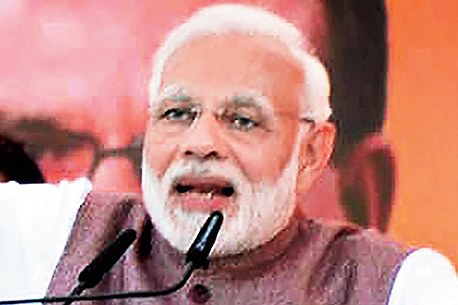The Indian prime minister has a way with words. He loves similes and metaphors, scattering them about in a secret bid, perhaps, to display his poetic sensibilities as his predecessor from the Bharatiya Janata Party did in actual poetry. Only his rhetoric has a markedly different effect from poetic verses. Sometimes its substance is just false, as was that of his latest remarks on demonetisation in a speech in Jhabua, Madhya Pradesh. He called his act a bitter medicine to root out corruption, like poisonous medicine to kill termites. Narendra Modi loves termites — as a metaphor, of course: in the Independence Day speech in 2015, he had promised to apply medicine to the termite of corruption. Unfortunately for the comment in Jhabua, the Union agriculture ministry was submitting, at the same time, a report to the parliamentary standing committee on finance, showing that demonetisation had destroyed the ability of millions of farmers to buy seeds and fertilisers. Earlier, in a jibe against the Congress, Mr Modi said that an old man stops weeping for his dead son after a year, but the Congress cannot stop carping even after two years. This is Mr Modi at his best — untouched by normal hesitation, and indisputably without any sensibility, poetic or otherwise. How does he know that old, grieving fathers recover within a year of losing their child? Does a prime minister enjoy the prerogative of drawing on the private emotions of citizens in his political bickering? This comparison is on the same plane as his 2013 answer to the question whether he felt sorry for the 2002 Gujarat violence. If he was in the back seat of a car and a “kutte ka bachcha” came under the wheels, he would feel pain, he had said.
The equivalence of kutte ka bachcha with the victims of violence was shocking from a man slated to become prime minister. Mr Modi has not modulated his felicity in direct and indirect abuse since then, establishing it, through regular practice, as a legitimate form of political exchange, thus lowering political rhetoric in general to the narrow, mean and ugly. Name-calling — of individuals, parties and population groups — is the new normal. The Congress and its leaders are the main targets; gradually, vivid abuse and a tirade of accusations are becoming the substance of so-called political speeches. But of course the prime minister must continue to do what he is best at; presumably it is what makes him so popular.













